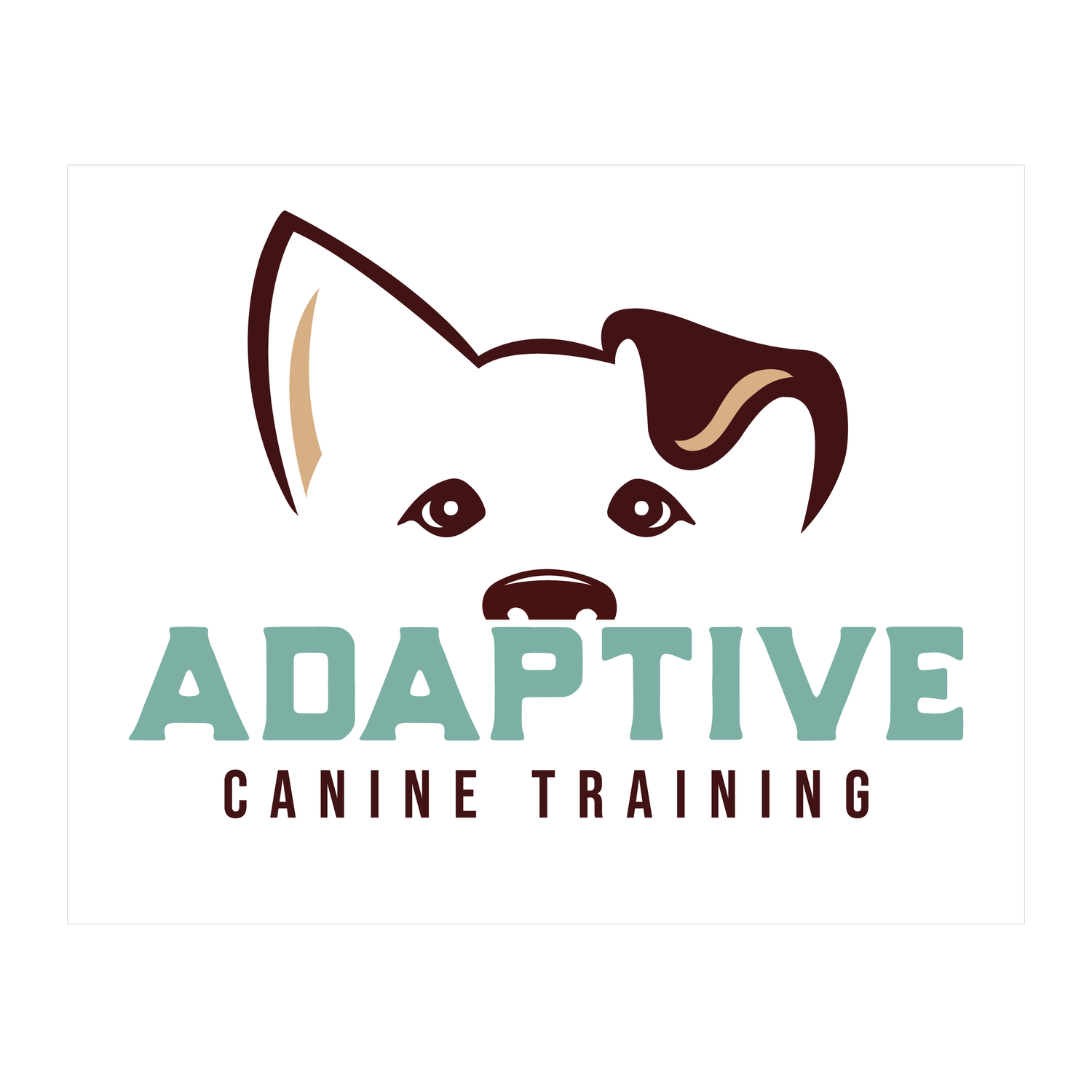Continued Support for Puppy Training
At Adaptive Canine Training, we often remind our clients that training is a lifestyle, not a checklist. Just like kids don’t master all their life skills in one class, puppies need continued structure, practice, and support to grow into confident, well-mannered adult dogs.
Let’s take a closer look at why continued support matters, and the key areas that benefit most from ongoing guidance.
Mouth Manners
That playful puppy nibble might seem harmless now, but left unaddressed, it can turn into a habit as your dog grows.
Continued training around mouth manners helps your dog learn bite inhibition, an essential skill for safety and communication. Puppies explore the world with their mouths, but that doesn’t mean it’s okay to chew on hands, clothing, or guests.
Why it matters:
Prevents future biting issues
Promotes calm, respectful interaction
Builds impulse control and respect for boundaries
Jumping
Jumping is one of the most common puppy behaviors we see, and one of the most overlooked. Puppies jump to get attention, greet people, or express energy. While it may seem cute at first, it can quickly become overwhelming or even dangerous as they grow.
Staying consistent with training helps reinforce calm greetings and redirects jumping into more polite behaviors, like sitting or waiting.
Why it matters:
Prevents accidental injuries or intimidation
Encourages polite social interactions
Builds patience and self-control
Kennel Training
Crate or kennel training is more than just a way to manage your puppy—it’s a tool for helping them feel secure and self-soothe. But consistency is key. If your puppy only goes in the kennel occasionally, or is released when whining, it can lead to anxiety or confusion.
With continued reinforcement, your pup learns that the crate is a place of rest and safety, not isolation or stress.
Why it matters:
Supports potty training
Creates a safe environment during downtime
Reduces anxiety during travel, vet visits, or boarding
Demanding Behaviors
Whining, barking for attention, pawing at you during mealtimes… these “demanding” behaviors can sneak up on you fast! They’re often signs that your pup is learning they can get what they want by being pushy.
Training helps you redirect these behaviors into calm communication, and builds a relationship where your dog learns to ask appropriately and sometimes wait patiently.
Why it matters:
Prevents future behavioral issues like reactivity or resource guarding
Builds emotional regulation
Strengthens respectful two-way communication between you and your dog
Leash Walking
Leash manners don’t happen overnight. They’re a daily habit, just like brushing your teeth. Without regular practice, your puppy will revert to pulling, lunging, or disconnecting from you entirely.
Through ongoing leash training, your dog learns to check in, pace with you, and stay focused even with distractions around.
Why it matters:
Makes walks safer and more enjoyable
Teaches focus and engagement
Builds trust and teamwork in high-stimulus environments
These specific behaviors aren’t just about obedience, they’re about relationship.
When you stay consistent, you show your puppy how to navigate the world with confidence, clarity, and respect. That builds trust. It builds communication. And it helps you enjoy more freedom and fun with your dog at home and in the world!
At Adaptive Canine Training, we know every dog develops at their own pace. If you feel like your puppy still needs structure in one (or more) of these areas, you’re not alone. Let’s work together to keep your dog on track, and help you build the lifelong bond every dog deserves.



